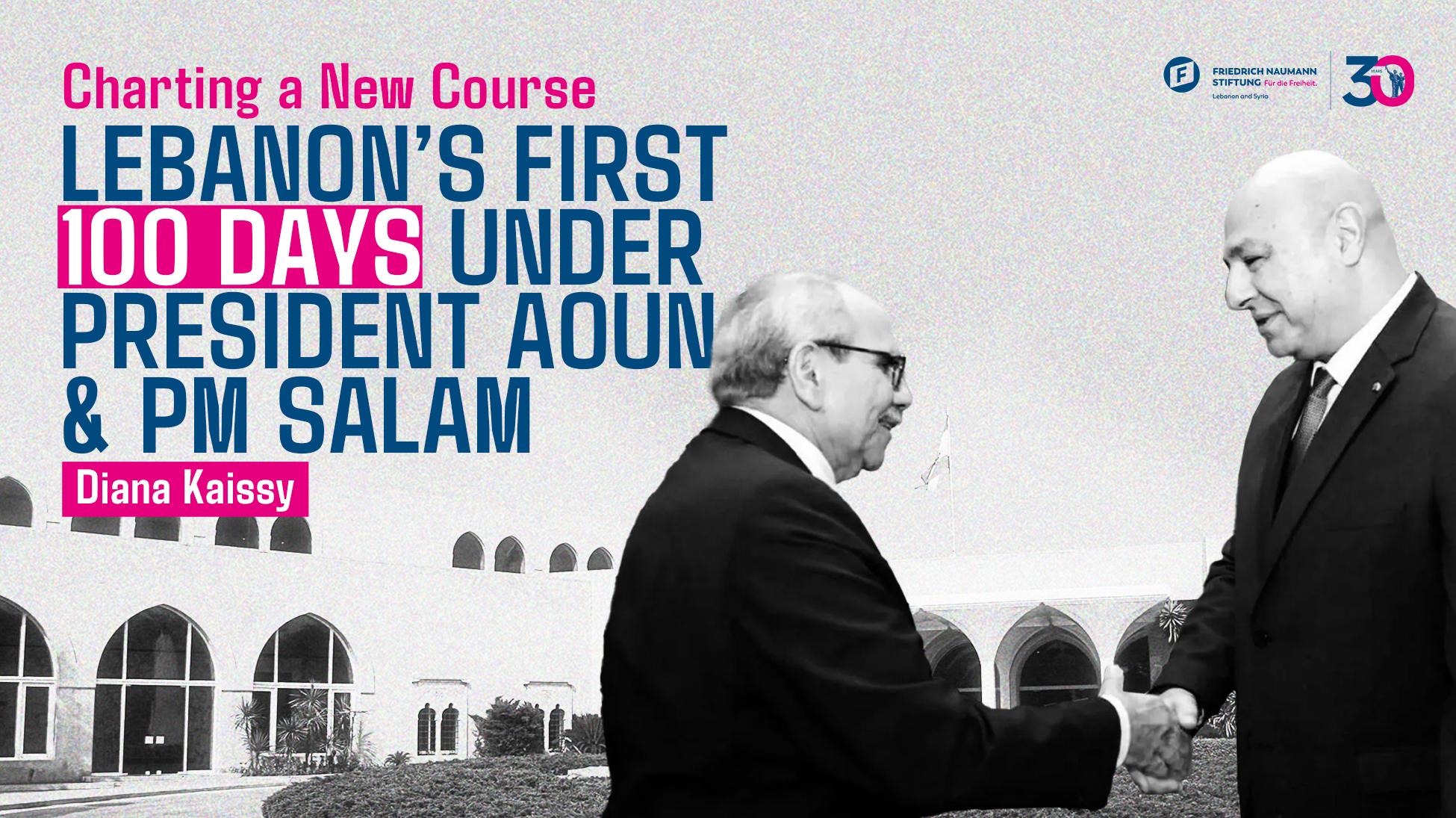Lebanon
Charting a New Course

In January 2025, Lebanon witnessed a long-awaited political shift with the election of President Joseph Aoun and the appointment of Prime Minister Nawaf Salam. Amid the ruins of war, economic collapse, and institutional paralysis, this new leadership duo stepped into power with the promise of reform and national revival.
These two complementary policy papers by Diana Kaissy offer an in-depth, evidence-based examination of their first 100 days in office, covering both broad governance reforms and targeted sectoral action.
Charting a New Course: Lebanon’s First 100 Days under President Aoun & PM Salam
This policy brief provides a comprehensive analysis of the Aoun–Salam government’s early priorities, from economic stabilization to administrative reform and municipal democracy. It highlights key milestones, such as passing IMF-aligned financial legislation, reactivating the National Anti-Corruption Commission, relaunching public services through e-governance, and organizing Lebanon’s first municipal elections since 2016. The brief also examines how the government sought to regain regional and international support amid persistent political and structural challenges.
Read the full paper
Spotlight: Energy Sector Reform under President Aoun and PM Salam
Lebanon’s energy crisis has long symbolized its governance failures. This focused paper explores how the new administration addressed this crisis head-on by activating the long-stalled Electricity Regulatory Authority, securing a $250 million World Bank loan for renewable energy and grid stabilization, and working to restore regional energy integration. It offers clear, actionable recommendations to modernize Lebanon’s energy infrastructure and governance, from transparent hydrocarbon management to fair and socially sensitive electricity tariffs.
Download Spotlight
As Lebanon continues to face mounting social, financial, and geopolitical pressures, the real test will not lie in policy announcements, but in sustained political commitment and institutional resilience. These papers offer not only a snapshot of what has been achieved, but a roadmap for what still must be done to ensure that this moment of potential becomes a turning point rather than another missed opportunity.